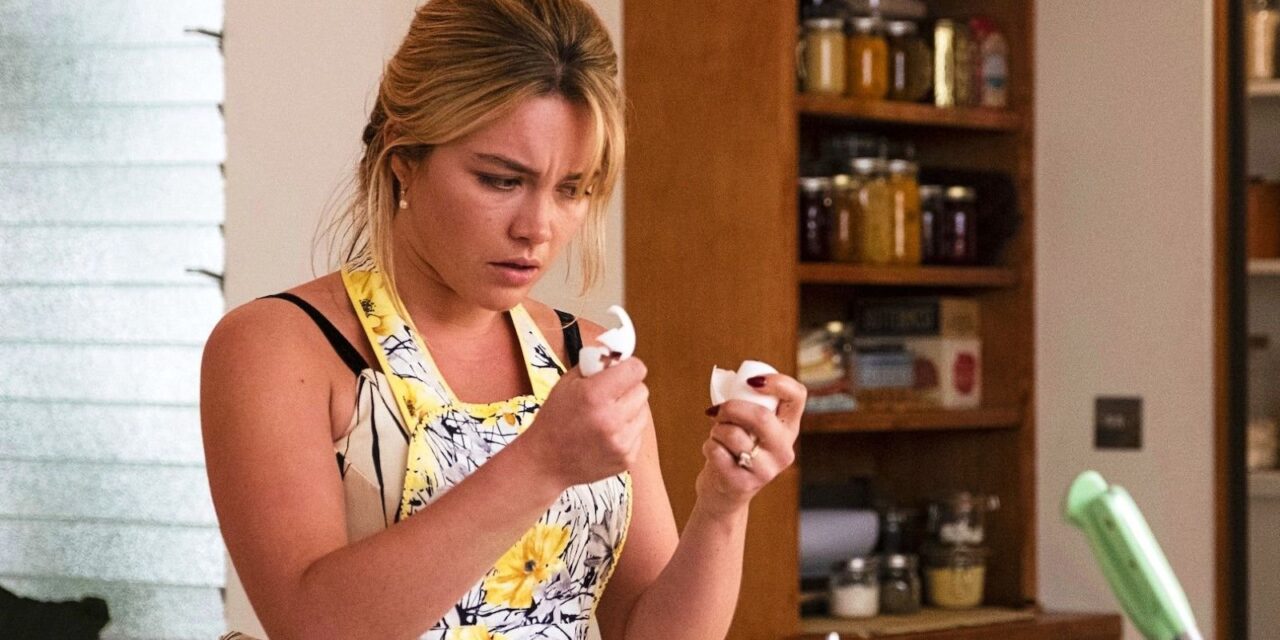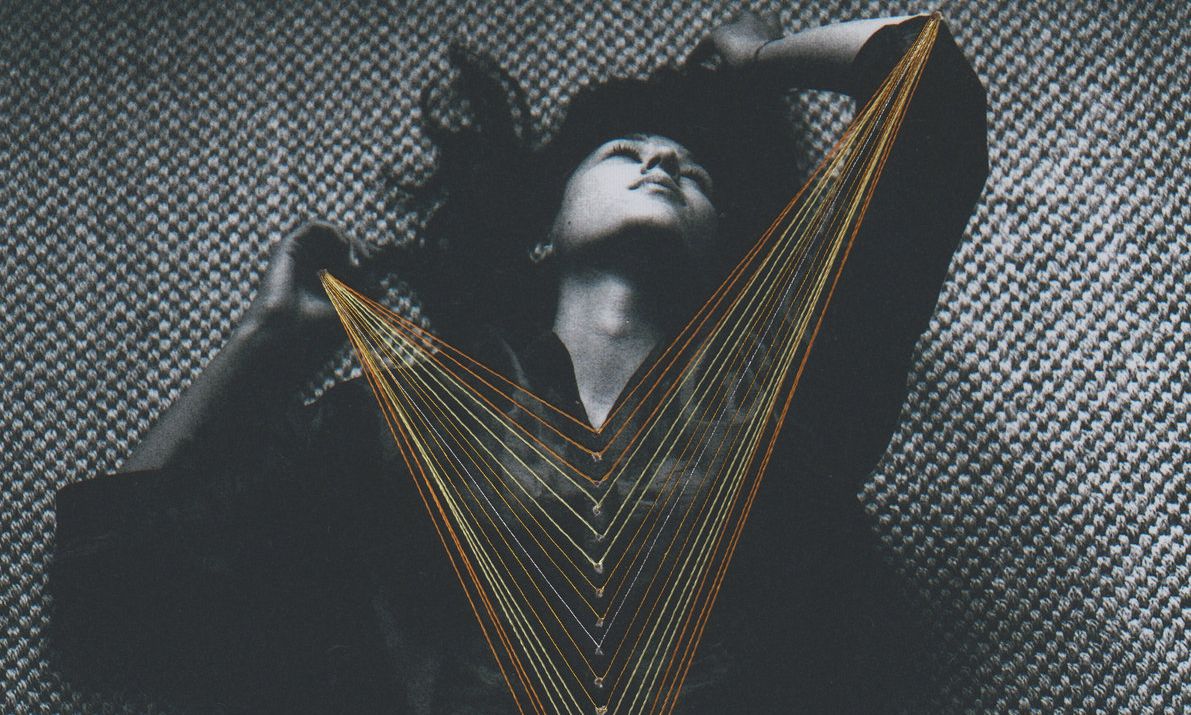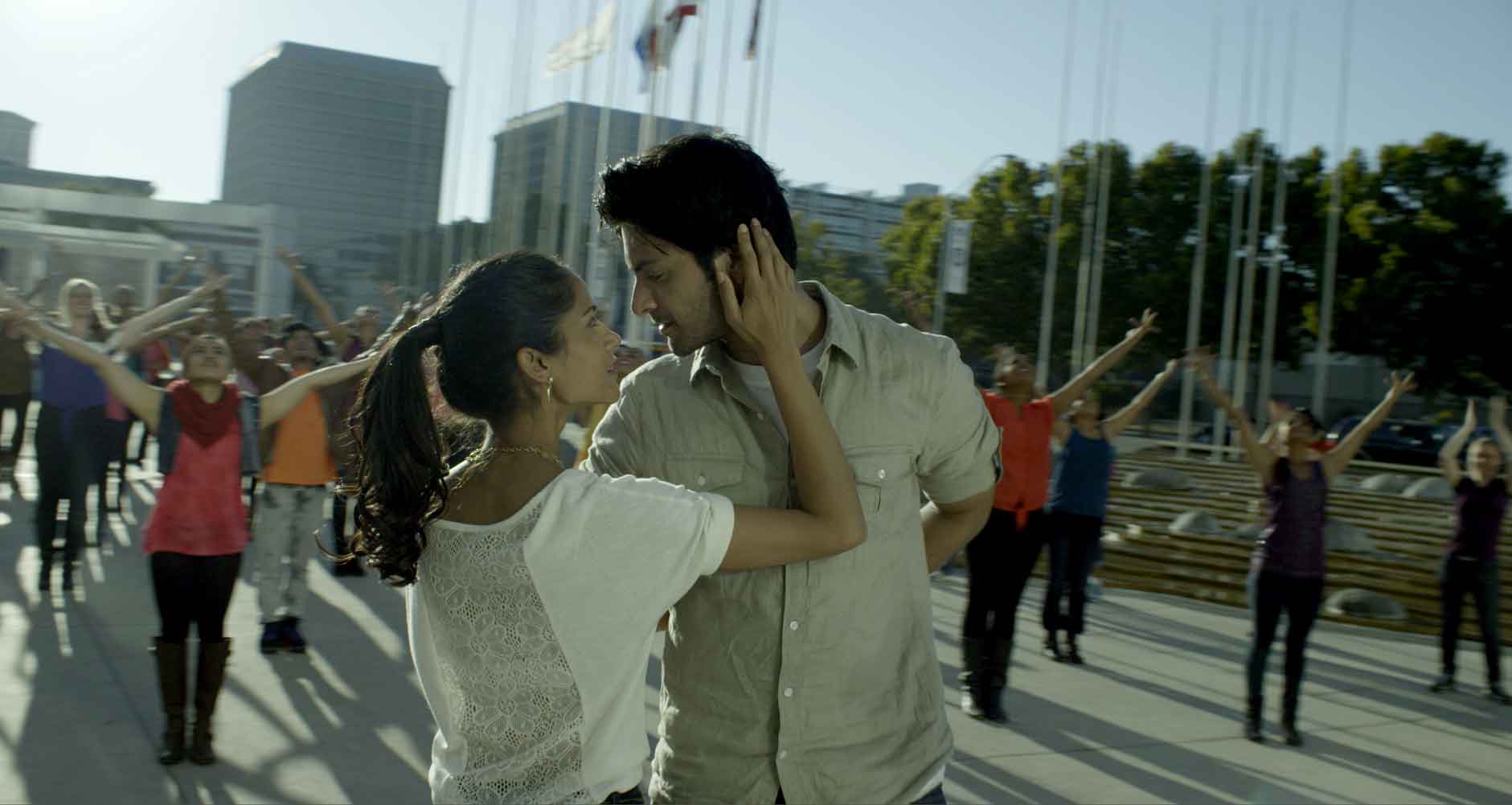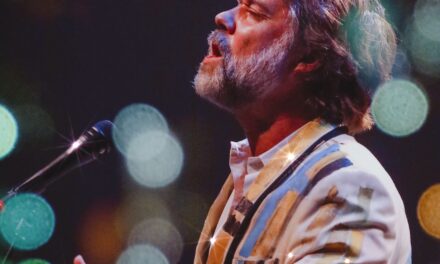Everything that contributes to the neighborhood of Victory’s 1950s esthetic is straight from a home economics book. Nothing is out of place in this utopic-looking suburbia basking in the South California sun. The cul-de-sacs and bright-colored architecture are what some people may think to equate to the symbolic vision of the American dream. Director Olivia Wilde’s Don’t Worry Darling doesn’t use the beginning as an entry point to how we got here — instead, it elects to place the audience at a time point where this community has set in a pattern. We meet the main couple Jack (Harry Styles) and Alice (Florence Pugh), a romantic portrait of young love.
There’s a daily cadence they seem to follow — Jack goes to work complete with a briefcase in hand, Alice takes care of the housework, does a little shopping with the town’s women, and has meals ready to go. At first, the couple is portrayed as highly passionate towards one another — they can’t keep their hands off one other, often sacrificing a dinner spread including roast and potatoes. Everything seems in place, but things start not to add up.
Why do all the men in the neighborhood leave for work simultaneously and can’t elaborate on what they do? Alice hums along to a song she doesn’t remember the origins of and gives way to brief flashbacks she can’t understand. There’s also the matter of the charismatic Frank (Chris Pine), founder of the Victory Project (nobody knows what this entails exactly), who has a hold of elation amongst the townspeople seemingly reminiscent of a cult leader. What is down the rabbit hole of this immaculately perfect, but dominant patriarchal existence?
Well, that’s a part of Don’t Worry Darling where it struggles to find that line. Writers Carey, Shane Van Dyke, and Katie Silberman know how to take you on the anticipation climb of the rollercoaster. However, the thrill of the drop waits too long to digest everything the film is trying to convey fully. The cracks show in some of the film’s character relationships. At the beginning of Don’t Worry Darling, Alice notices that one of the fellow housewives, Margaret (KiKi Layne), acts strangely. Margaret has a hunch something disturbing is going on at Victory. Some of the dreams she describes mirror Alice’s, but many of the town (including Alice) brushes this aside as delusions. When Alice realizes there may be validity to her claims, she’s gone — merely used as a tool to move the film forward. Don’t Worry Darling briefly tries to say these two characters had a longstanding friendship without showing us that.
Something that’s no surprise to anyone, Florence Pugh’s performance is outstanding. As the surrounding construct becomes less accurate, the audience can tap into her inspiration, fire, and despair — even if Don’t Worry Darling falls in love with Alice being excessively tested. Alice’s curiosity eventually clashes with Frank’s never-ending mantle of hero worship. This is thrilling to see, albeit only for a short time. The intense chemistry that comes right out the gate between Jack and Alice falters as the film continues. To Styles’ credit, he tries his hardest to elevate his acting to the level of Pugh’s, but there’s a noticeable gap. The film calls on him to do a very emotional scene, which unfortunately misses the mark.
Victory has distractions aplenty with roaring 20s-style ballroom get-togethers. Alice’s friends, Bunny (played by Wilde), Peg (Kate Berlant), and Violet (Sydney Chandler), seem comfortable in residing in their societal roles, being the backups to their husbands. But you have to question, is this the thing Don’t Worry Darling is asking us to examine? Films like The Stepford Wives and The Truman Show have done an excellent job of deciphering stereotypical American values views that can affect the average person with spectacle and the idea of women inside it. While Don’t Worry Darling drives home that this outlook is highly outdated and constricting, the conclusion doesn’t fit the size of the narrative itself, especially when the ills of the patriarchy have been done in the sci-fi and mystery genres better in the past.
Probably the saddest part about Don’t Worry Darling is the good concepts it misses connecting. Because of that, this film will be remembered for its calamities and problems during production (come on, you already know by now) the most. Everything from the cinematography, costume design, and score succeeds at the highest levels. The worry that should carry is that the film’s finished product won’t be able to speak over the storm surrounding it.
Photo Credit: Warner Brothers Pictures













